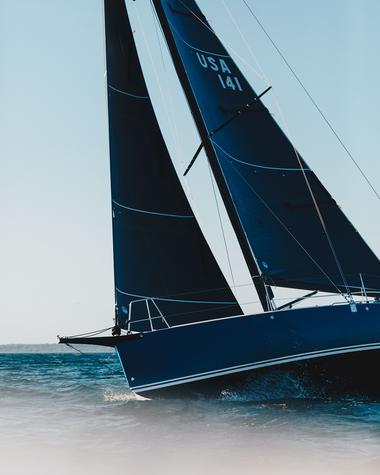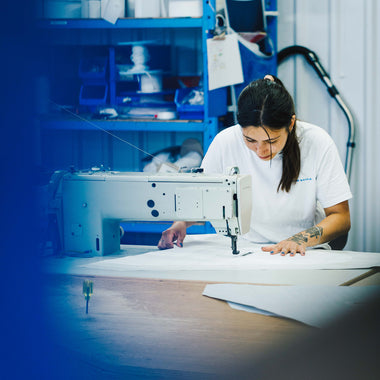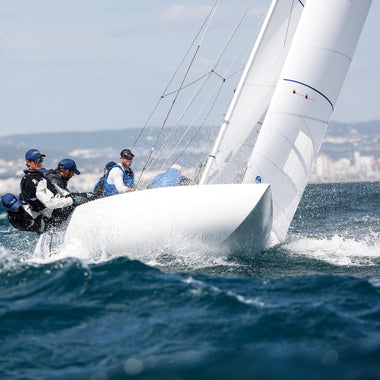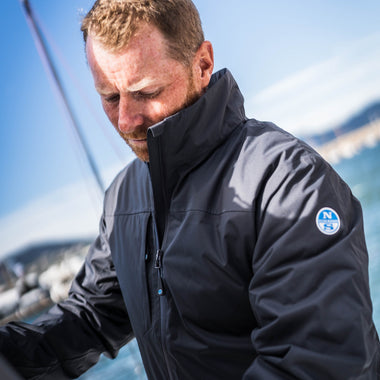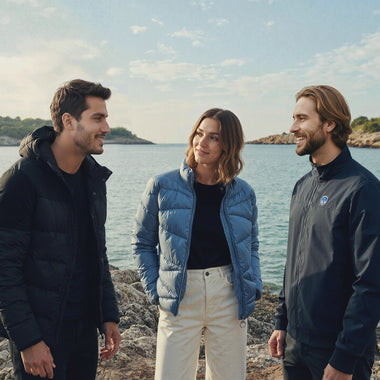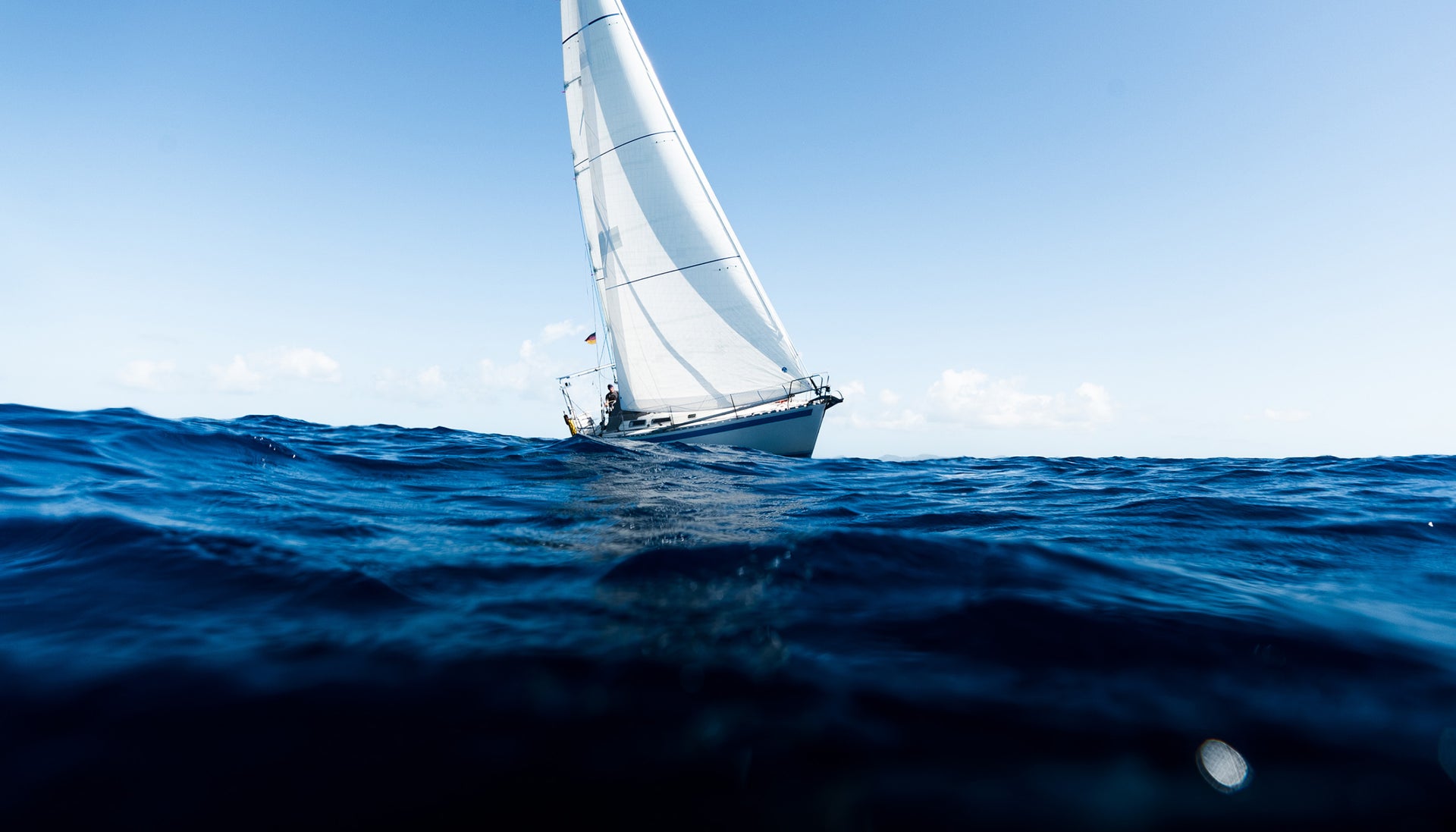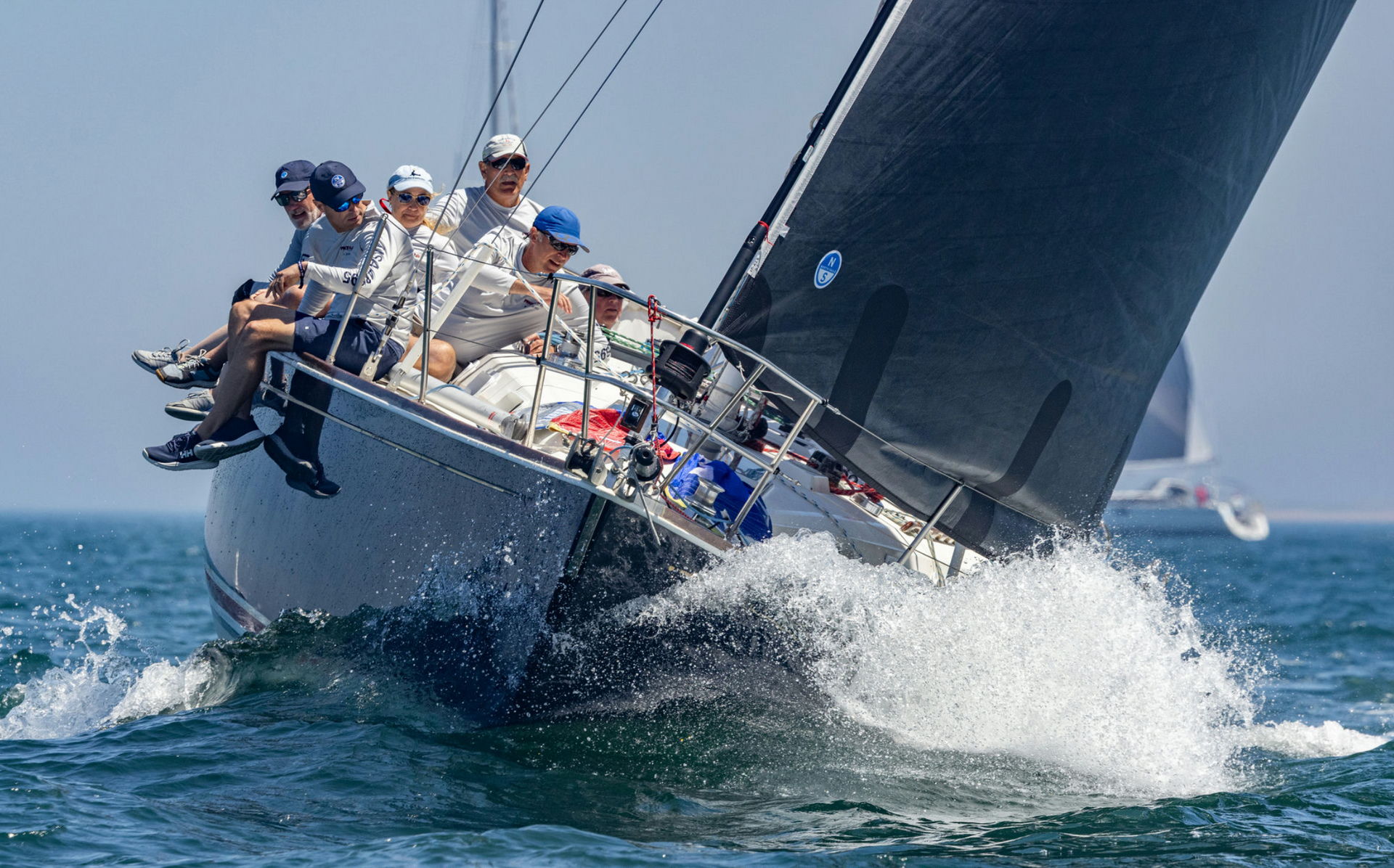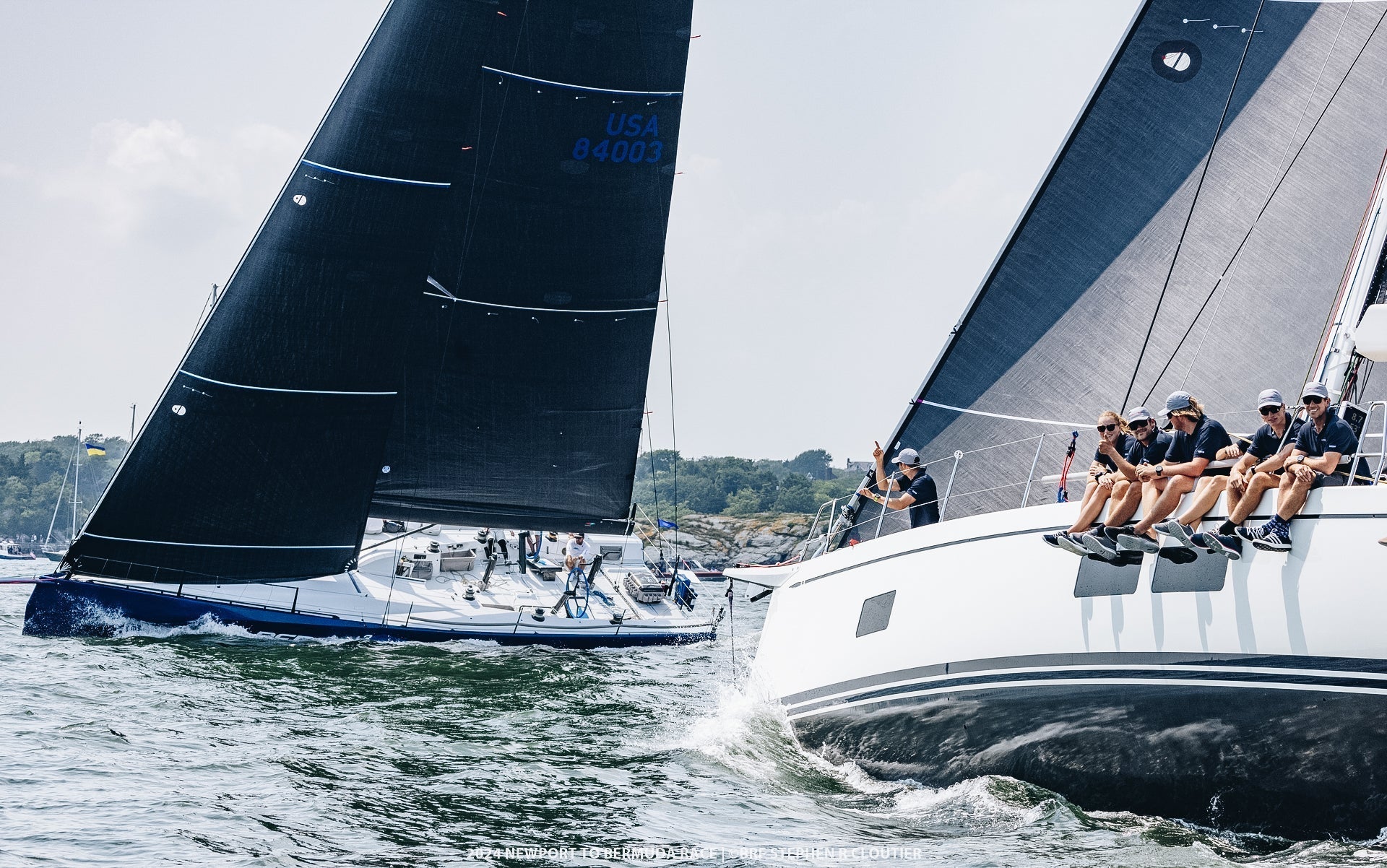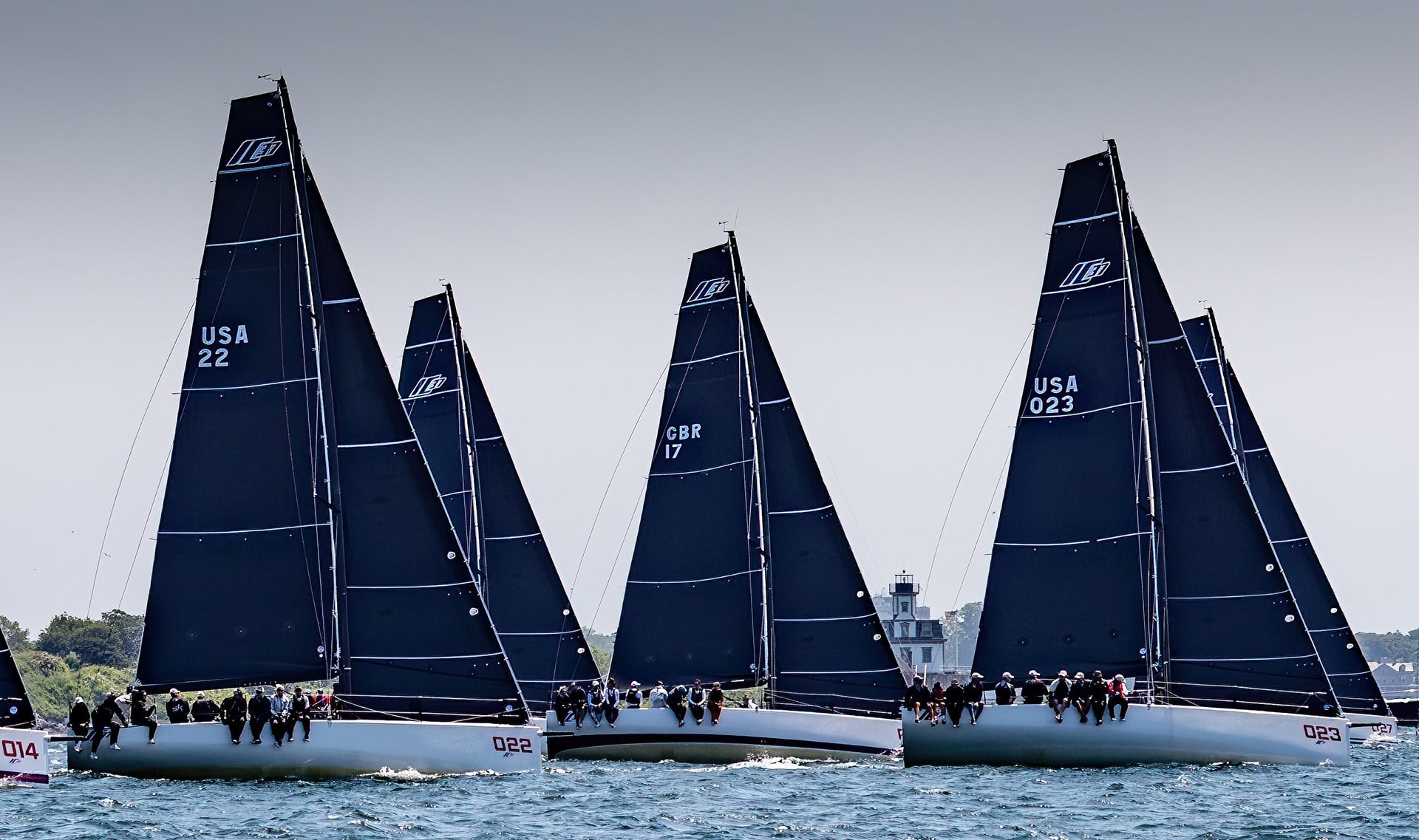SUZY LEECH: IMPRESSIVE AND IMPRESSED!
SUZY LEECH: IMPRESSIVE & IMPRESSED!
Teaming Up With Ken Read To Win Ft Lauderdale to Key West Race

For more decades than she likes to admit, Suzy Leech has dealt with whatever challenge is thrown at her, on any kind of boat. From the bow of Mighty Mary, the 1995 all-women’s America’s Cup team, to forward teammate on Betsy Alison’s Olympic Yngling campaign, to navigating Enterprise to 2nd place at the 2019 12 Meter Worlds, Suzy is (in the words of Ken Read) a “bad-ass.” So it’s no surprise that she embraced her newest challenge, a 24-hour double-handed sprint down the Keys, with enthusiasm. It’s also no surprise that she helped Kenny achieve yet another victory.
“He was awesome,” Suzy says, when we caught up with her shortly before the prizegiving. “Kenny just wanted to go out and try this whole thing and see if he likes it. Between Jeanneau and North Sails, all the details were completely covered. I had a really great time, and it was the perfect introduction.”
Two brains are better than one. If you have the same skill set, you’re wasting it.
One reason why this first-time pairing worked so well, Suzy believes, is that it was so symbiotic. “I’m fine doing the sail handling and I loved navigating, but I am not that person to make your boat go fast. I’m not going to look at the sail combination and go, ooh, we need to tweak this here and do that there.” So while Ken kept suggesting sail changes (she figures they made about 20 in the course of the race), she worried about plotting the fastest course into Key West—in the dark. Watching the series of pre-dawn squalls on radar and trying to predict the next shift was totally different from the sailing she’d done before. “You’re completely blind. Maybe you see the stars are going away, but that’s it—a whole new world.”
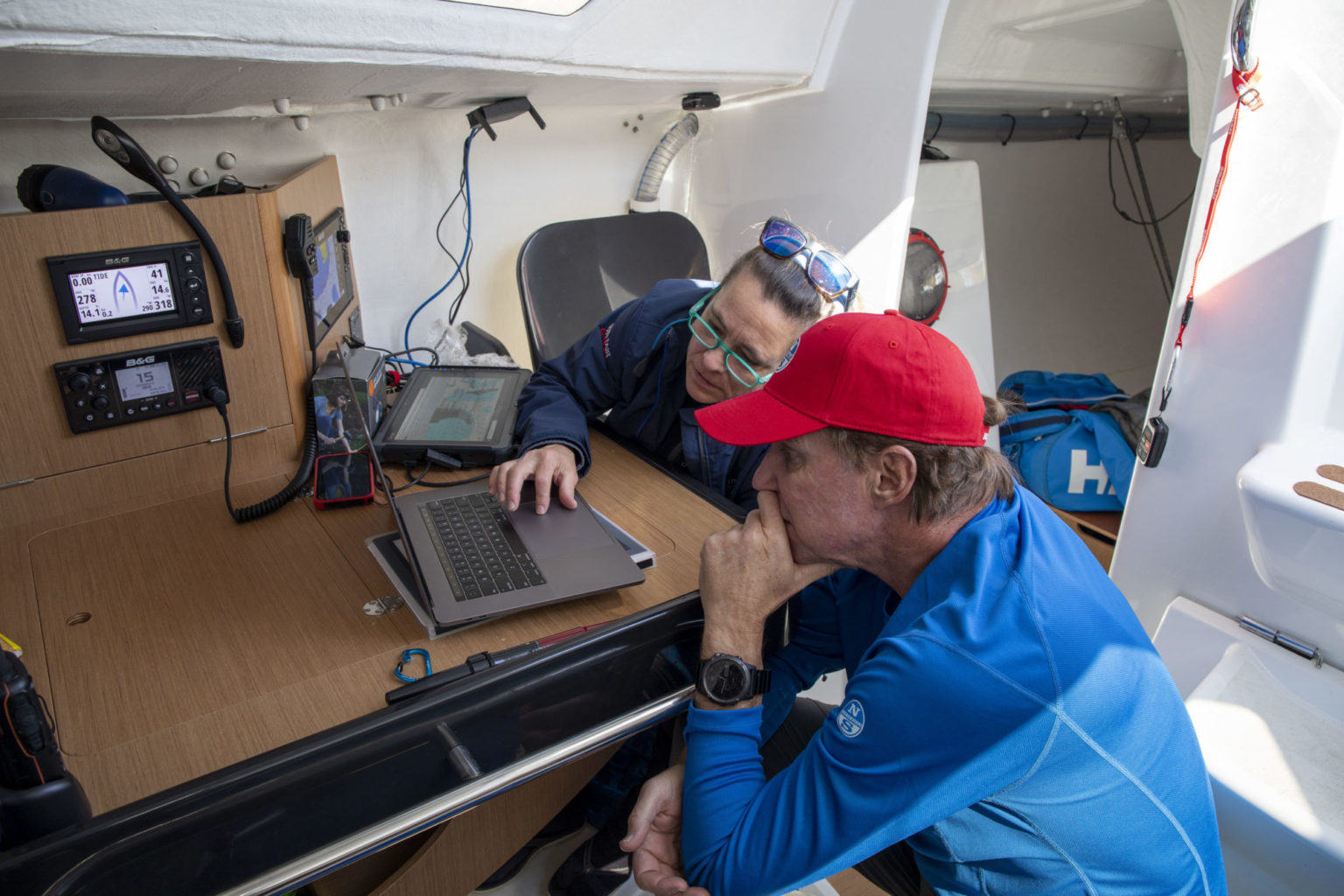
One of Suzy’s biggest takeaways was the incredible range of new sail designs. “We had a Code Zero and a Code 50, what they’re calling a tweener. It was a great all-purpose sail that we were able to put up and know that it could handle squalls and keep us going when the wind died. That last part of the race there was so much lump and rain, you couldn’t fly the A2. The code sails really came through for us because you could trim to what you needed.”
Suzy also raved about the prototype jib that reefed into a blast reacher, and their incredibly versatile staysail. “No matter what other sails we had up, whether it was the Code Zero, the Code 50, the A2, or the headsail, we always had the staysail up from the beginning of the race to the end.” That meant no bare-headed peels—but it also meant learning new lessons (in the dark, and on the fly) for this former bowman who describes herself as “an old dog.” Back aft after each sail change, the cockpit looked like “a home crocheting project gone wrong.” Fortunately Ken dove into cleanup with enthusiasm. “He didn’t care what he did, he just pitched in to help make the boat go faster. I was so impressed.”

Looking ahead, Suzy says she’s excited to see where the partnership between North Sails and Jeanneau to promote double-handed sailing leads next. “They’re both looking at the long-term game. They want to get more people into sailing, because they want to find more buyers for boats and sails. We came up with a list of things to change, and any idea that we had was like, okay, ‘let’s do that. Let’s try it out. Let’s make it happen.’ It’s very refreshing.”
She’s also excited about the new mixed double-handed offshore Olympic discipline, and racing with Kenny to Key West taught her what to look for in a potential teammate. “First is compatibility. Can I hang out with you? Do we like the same wine?” She laughs. “That’s important!” While that might be the same for any sailing campaign, her second priority is a bit different: complementary skills. “Two brains are better than one. If you have the same skill set, you’re wasting it.”
And after dealing with so many different sailing challenges for so many years, Suzy also knows that the talent pool for offshore sailors who happen to be female is not very deep at the moment. “I hope that this new generation steps up to the plate. It’s going to be a great opportunity.”

